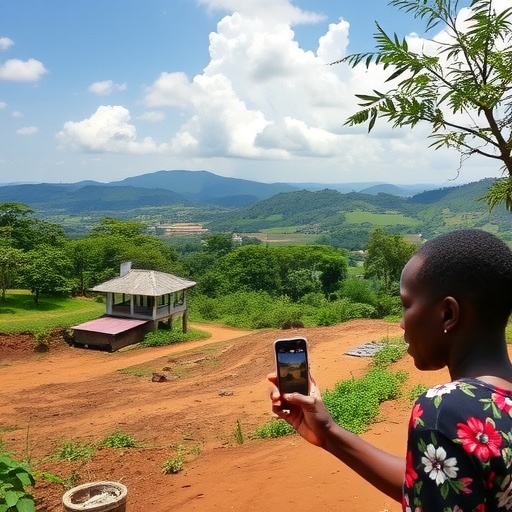The intersection of visual media and health systems research has given birth to innovative methodologies, one of which is photovoice. A recent study from Uganda, spearheaded by researchers Musoke, Nalinya, Namata, and their colleagues, delves into the application of photovoice as a research methodology. The aim of their study is to explore how this approach can enrich health systems research by integrating the perspectives of the marginalized communities. As the study reveals, through the lens of a camera, individuals can narrate their stories, making their voices heard in matters that affect their health and wellbeing.
Photovoice is more than just a data collection method; it serves as a powerful tool for empowerment. Researchers have found that allowing participants to take photographs of their experiences encourages deeper engagement with the research process. By visually documenting their reality, participants can express feelings, concerns, and observations that might not be fully articulated through traditional quantitative methods. This dynamic is particularly valuable in health systems research, where understanding the socio-cultural context is crucial for effective interventions.
In Uganda, where access to health services can be fraught with systemic challenges, the use of photovoice takes on special significance. The study highlights how individuals from marginalized groups, often overlooked in conventional research, utilize photography to capture the struggles and triumphs they encounter in accessing healthcare. The visual narratives culturally resonate within the communities, creating a way for researchers and policymakers to better understand the lived experiences of these communities.
The methodological considerations outlined in the study reveal that while photovoice is advantageous, it also presents unique challenges. One such challenge is ensuring that the ethical implications of capturing and displaying participants’ images are managed effectively. Consent, privacy, and the potential for misrepresentation are critical aspects that researchers must navigate to honor the dignity of participants while producing valid research outcomes.
Through qualitative analysis, the research team uncovered that utilizing photovoice not only fosters a deeper understanding of community health issues but also enhances the participants’ agency. When individuals see their narratives represented, it cultivates a sense of ownership over the research process. This can have significant implications, as engaging communities in this manner potentially leads to more effective health interventions tailored to their specific needs.
In the Ugandan context, participants created vivid displays of their realities—images capturing everything from crowded clinics to innovative local health solutions. These visuals serve as conversation starters among community members, health workers, and policymakers, sparking critical discussions about health resource allocation and accessibility. The study demonstrates that by employing photovoice, researchers can facilitate dialogue that bridges gaps between different stakeholders in the health system.
Furthermore, the findings suggest that the impact of photovoice extends beyond immediate research outcomes. The transformative power of visual storytelling can mobilize communities and ignite advocacy efforts. Participants, empowered by sharing their experiences, may feel inspired to advocate for changes within their local health systems, leading to enhanced resource mobilization and policy reform.
The study acknowledges that for photovoice to be a consistently effective research methodology, proper training for both facilitators and participants is essential. Researchers must ensure that participants feel comfortable and confident in using cameras and expressing their narratives through photography. This not only enhances the quality of data collected but also reinforces the goal of empowerment fundamental to the methodology.
Moreover, the researchers emphasize the necessity of interdisciplinary collaboration in executing photovoice projects. Engaging professionals from various fields—such as public health, photography, and community organizing—can bolster the effectiveness of the program and its outcomes. This collaborative approach ensures a comprehensive understanding, as diverse perspectives contribute to the richness of the research.
Ultimately, Musoke and her colleagues envision photovoice as a methodological beacon for future health systems research in low-resource settings. Their study advocates for a paradigm shift towards participatory research practices, challenging traditional top-down approaches. Photovoice has the potential not only to highlight pressing health issues but to illuminate pathways toward solutions rooted in the very communities they aim to serve.
The power of images in storytelling cannot be overstated. Photographs transcend language barriers and can evoke strong emotional responses from both viewers and participants. This capacity makes photovoice a compelling addition to the toolkit of health systems researchers seeking to engage communities meaningfully. The stories told through these visual mediums have the potential to resonate far beyond their immediate contexts, influencing policies and practices at national and global levels.
As this groundbreaking research from Uganda illuminates the potential of photovoice, it invites a larger conversation about the importance of innovative methodologies in health research. In a world increasingly defined by visual content, embracing approaches that marry technology with participatory engagement could reshape the landscape of public health. This work not only enriches the research but lays the groundwork for a more equitable health system marked by community voices at the forefront.
The implications of this research are profound, offering a roadmap for how health systems research can evolve to be more inclusive and representative. Photovoice is a herald of change in a field that often grapples with issues of representation and accessibility. As researchers reflect on the experiences shared within the study, one thing remains clear: the future of health systems research will be defined by the stories that communities choose to tell.
Subject of Research: The use of photovoice in health systems research in Uganda.
Article Title: Use of photovoice in health systems research: methodological considerations and experiences from Uganda.
Article References: Musoke, D., Nalinya, S., Namata, C. et al. Use of photovoice in health systems research: methodological considerations and experiences from Uganda. Health Res Policy Sys 23, 156 (2025). https://doi.org/10.1186/s12961-025-01420-x
Image Credits: AI Generated
DOI: https://doi.org/10.1186/s12961-025-01420-x
Keywords: Photovoice, Health Systems Research, Uganda, Methodological Innovation, Community Engagement.
Tags: community engagement in health studiesempowering marginalized communities in Ugandahealth access challenges in Ugandaimpact of visual documentation on health understandinginnovative research methodologies in global healthintegrating visual media in researchnarrative approaches to health researchparticipatory research methods in healthphotovoice methodology in health researchqualitative research techniques in healthsocio-cultural context in health interventionsvisual storytelling in health systems





